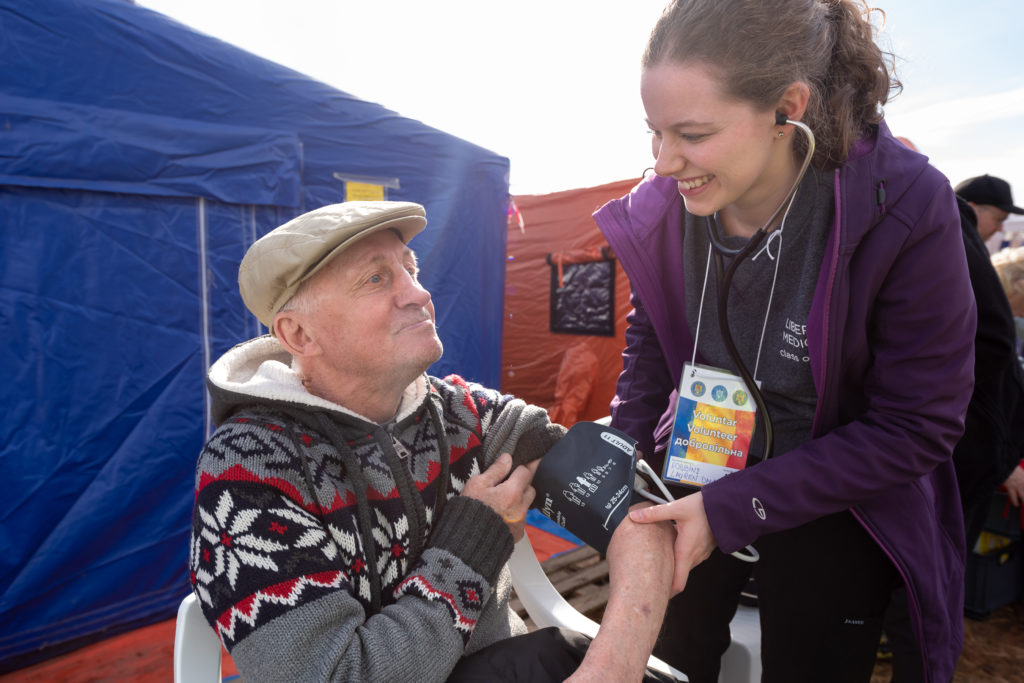“Are you looking for help? Do you need hope?”
A banner with these words printed over the Ukrainian flag hangs from tables where Romanian Christians and Send Relief teams interact with Ukrainian refugees at the border of Romania and Ukraine.
Oksana and her father see the banner and stop. She is from Mariupol – the Ukrainian city that resembles a scene from a dystopian novel.
“There is nothing there now,” Oksana said with pain in her eyes.
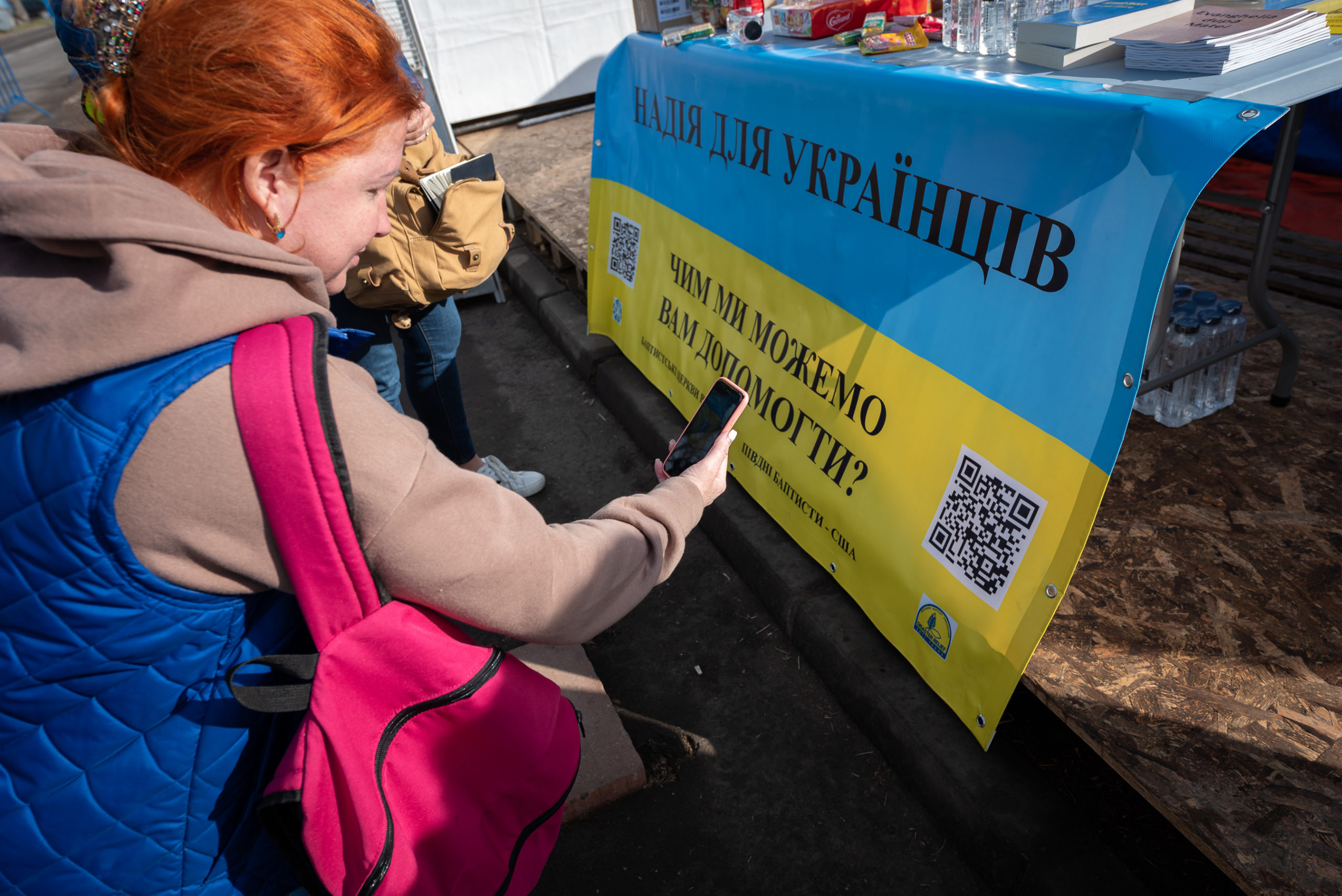
Oksana and her father left the city three weeks ago, taking refuge in another city before making their way to the border of Romania and Ukraine.
When asked if she still had family in Ukraine. She pointed to her father, “He’s my family.”
Send Relief volunteers from First Baptist Church of Folsom, La., directed Oksana’s father to a white plastic chair in between two tables of supplies. Lauren Robbins, a medical student from Liberty University, checked his blood pressure. Robbins’s father, Will, is the pastor of First Baptist Folsom. She traveled with him and other volunteers to serve Ukrainian refugees at the border and in refugee centers.
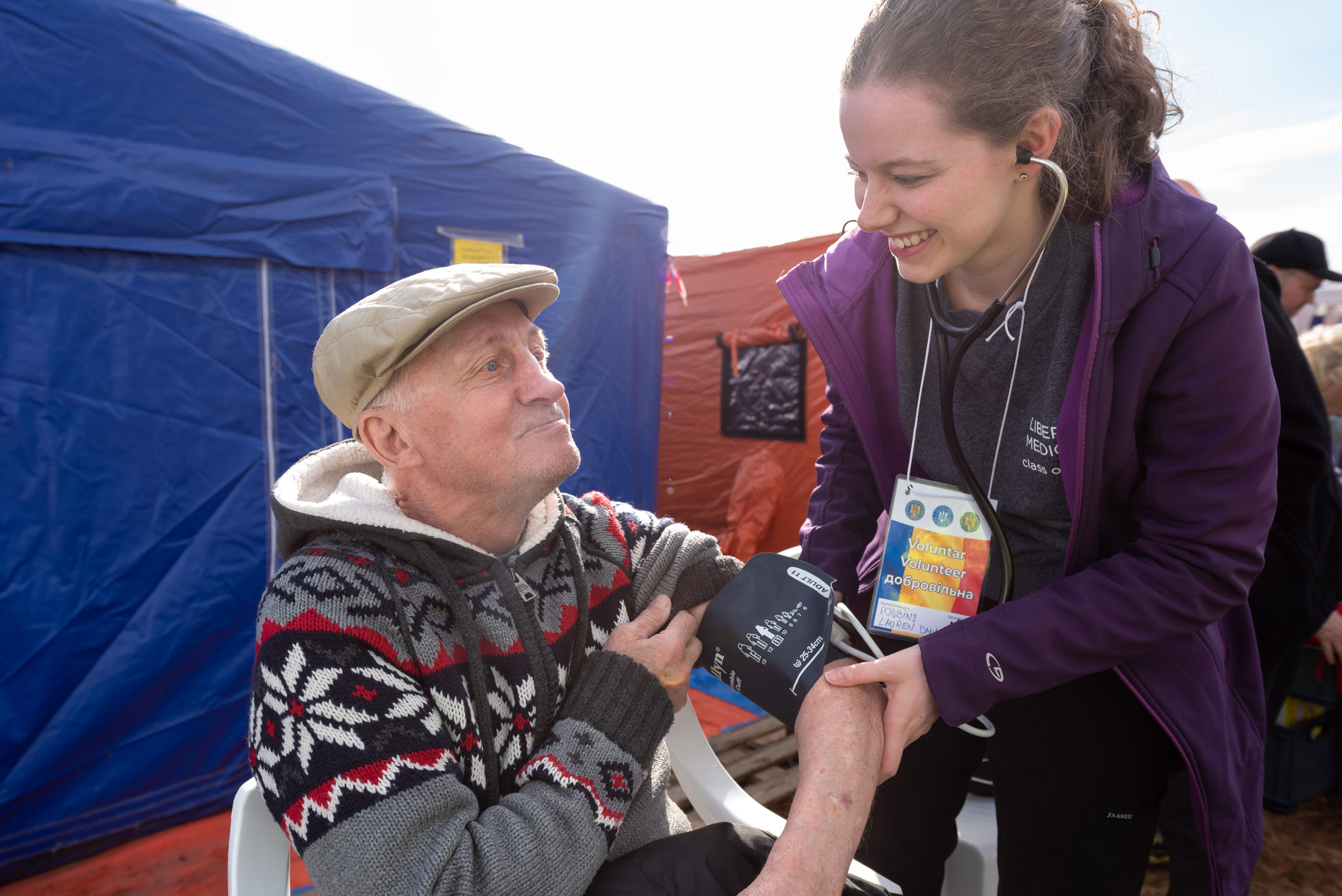
Oksana scans the “Hope for Ukraine” QR code that leads to a website that shares the gospel and offers an avenue to talk with a Christian. The website was developed by the International Mission Board (IMB) to connect with refugees and direct them toward Christ.
Robbins showed Oksana her father’s very high blood pressure reading. She recommended he take medication, but crossing the border had actually lowered his blood pressure. At a doctor’s visit a few weeks ago, his blood pressure was dangerously high. He said “thank you” in as many languages as he knew how, his broad smile evincing his gratefulness for their help.
After accepting snacks and a cup of coffee, Oksana placed her hand on her heart as a sign of thanks before she and her father walked away, in search of a new home.
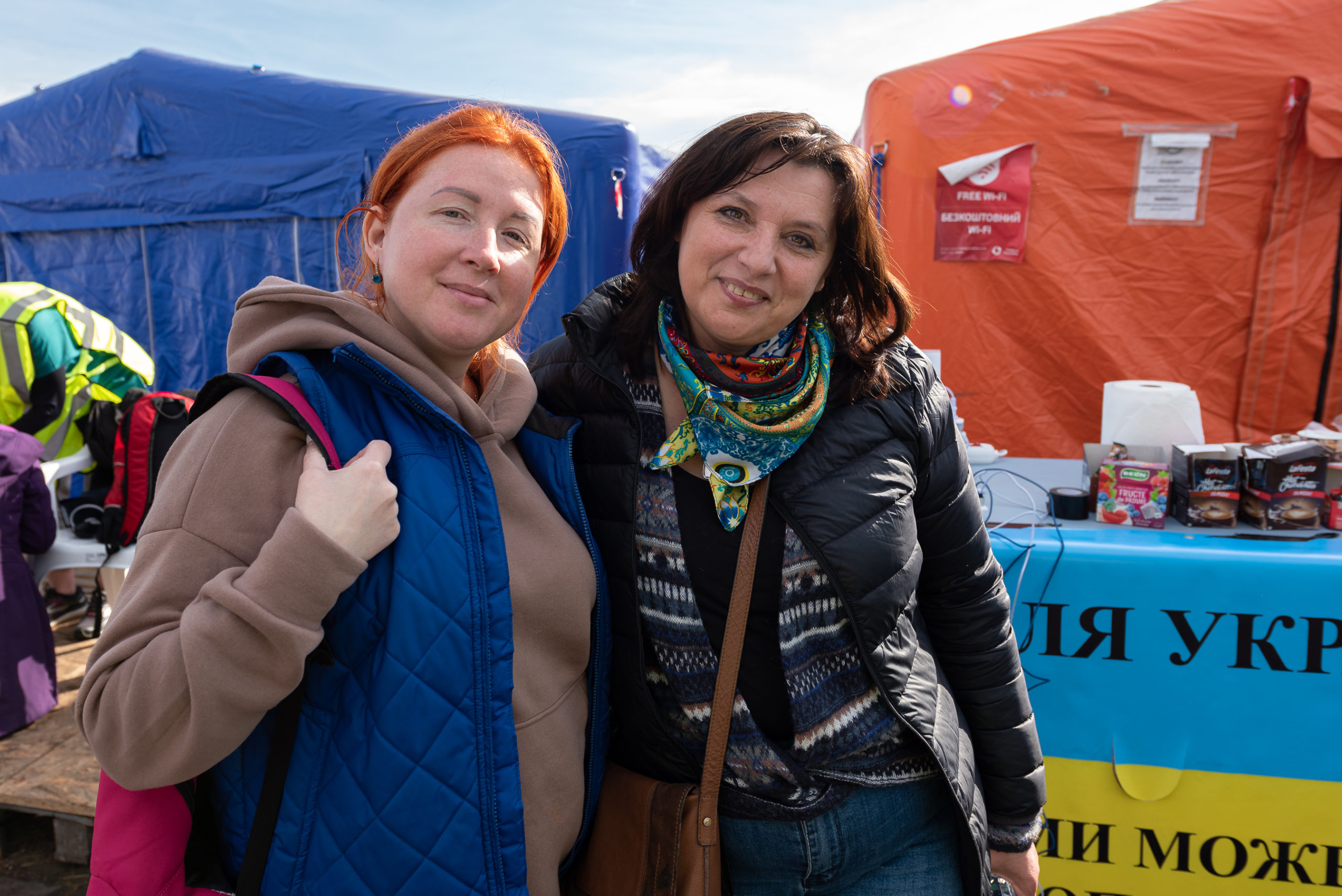
A few days later, Oksana messaged to say she and her father were safely in Bulgaria and her father’s blood pressure had gone down. She asked to receive the link to the Hope for Ukraine website so she could explore more.
Karen Stassi, also from FBC Folsom, loaned her medical expertise to assist refugees as well. Stassi has 40 years of nursing experience. A medical team from Cyprus asked if Stassi and Robbins could cover a shift at their medical station. Stethoscopes in hand, Stassi and Robbins crossed the road to tend to the Ukrainian patients. The Cypriot volunteers had served refugees on the Greek island of Lesbos and traveled to meet the needs of another refugee demographic.
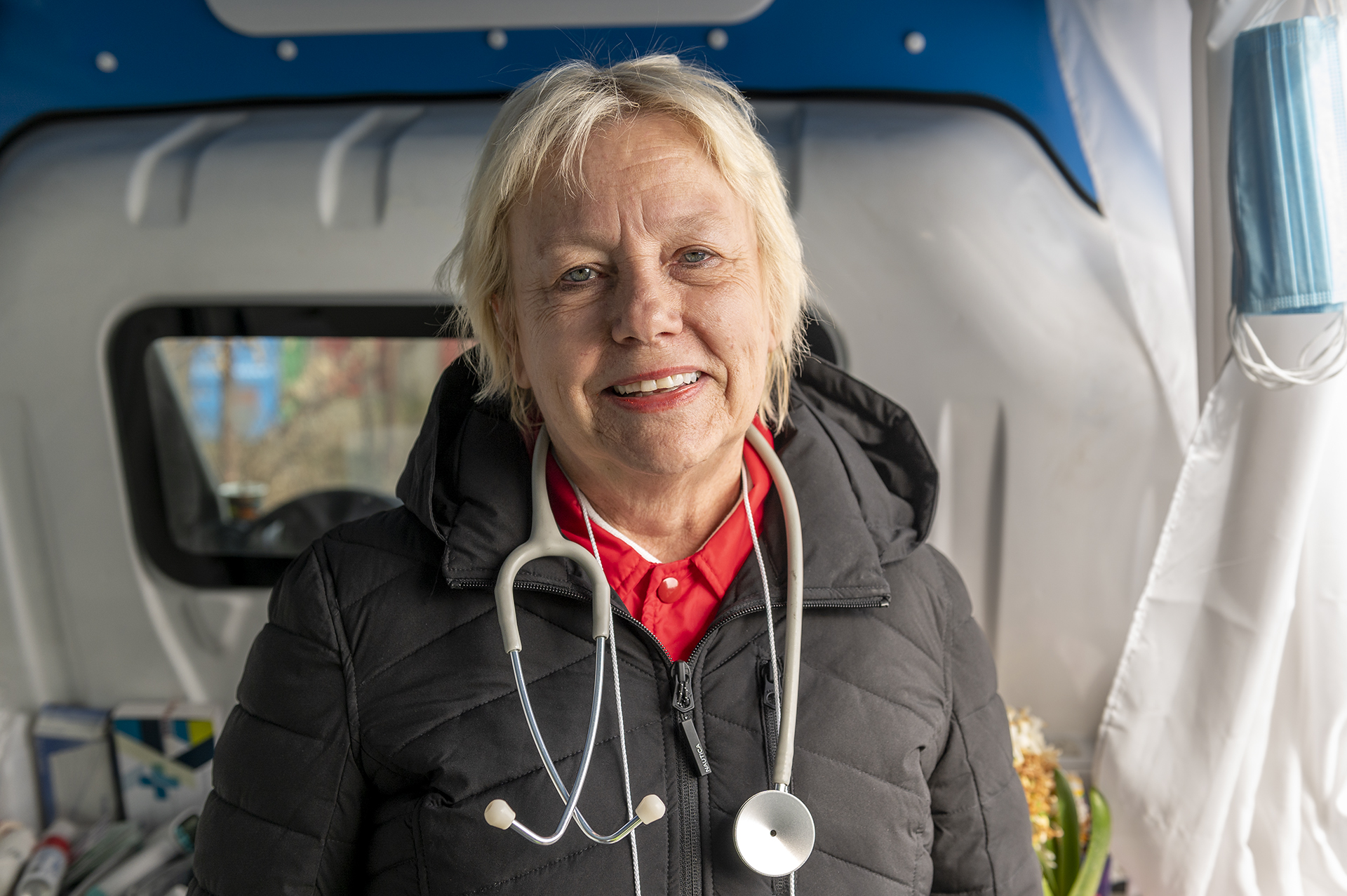
Goodwill abounds among the humanitarian organizations representing multiple nations – Israel, Malta, Egypt, Romania and the U.S. – who refer refugees to one another for aid. In addition to providing a charging station, snacks, juice boxes, tissue, coffee, tea and SIM cards, Send Relief and Southern Baptist Disaster Relief teams (SBDR) from the Baptist state conventions of Missouri, California and Texas distributed pain relievers, antiseptic cream and reading glasses.
The greatest gift offered by Southern Baptists, however, is not the medicine or the refreshments. It’s the love of Christ they receive and the hope that a Savior has already rescued them.
Published May 3, 2022
